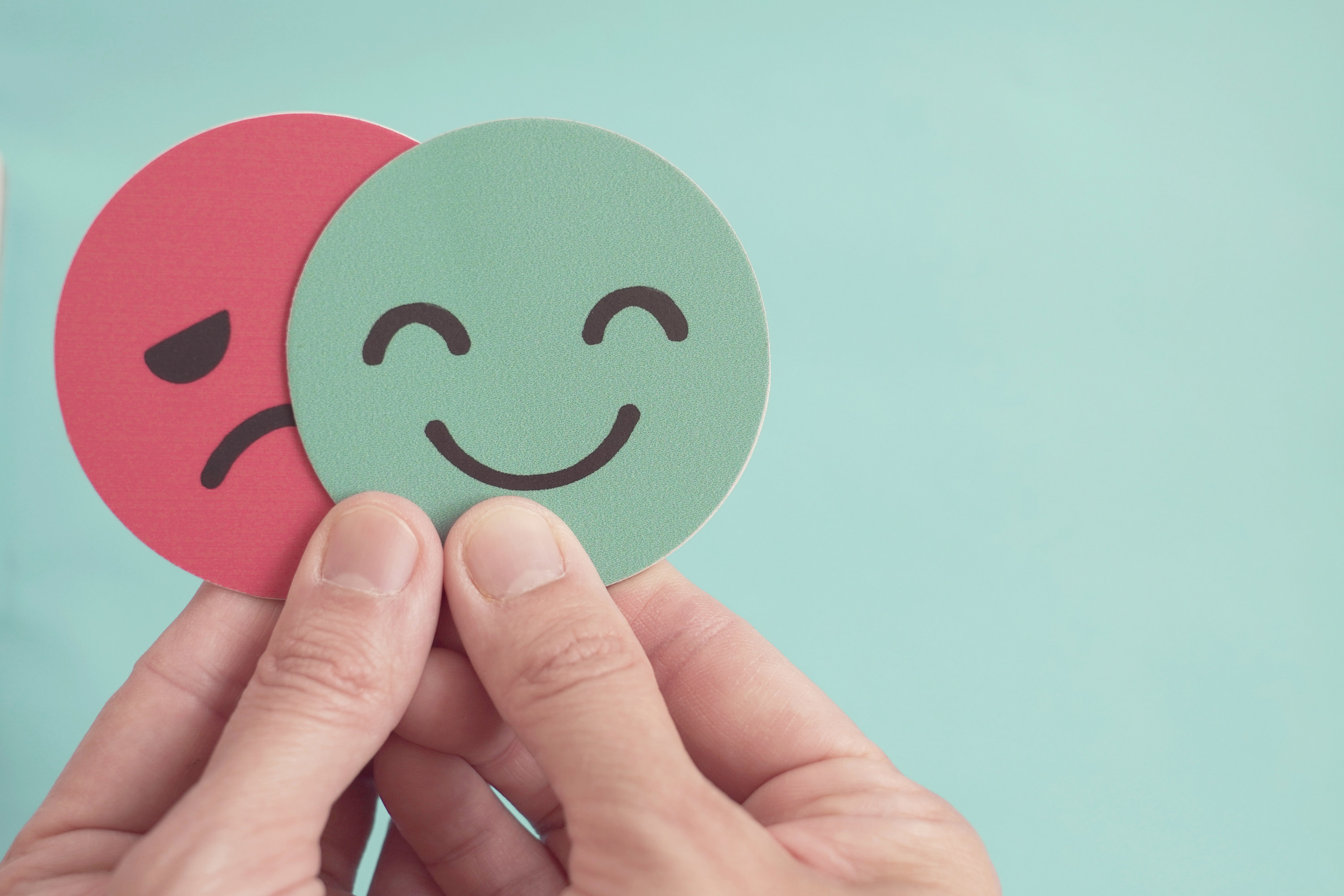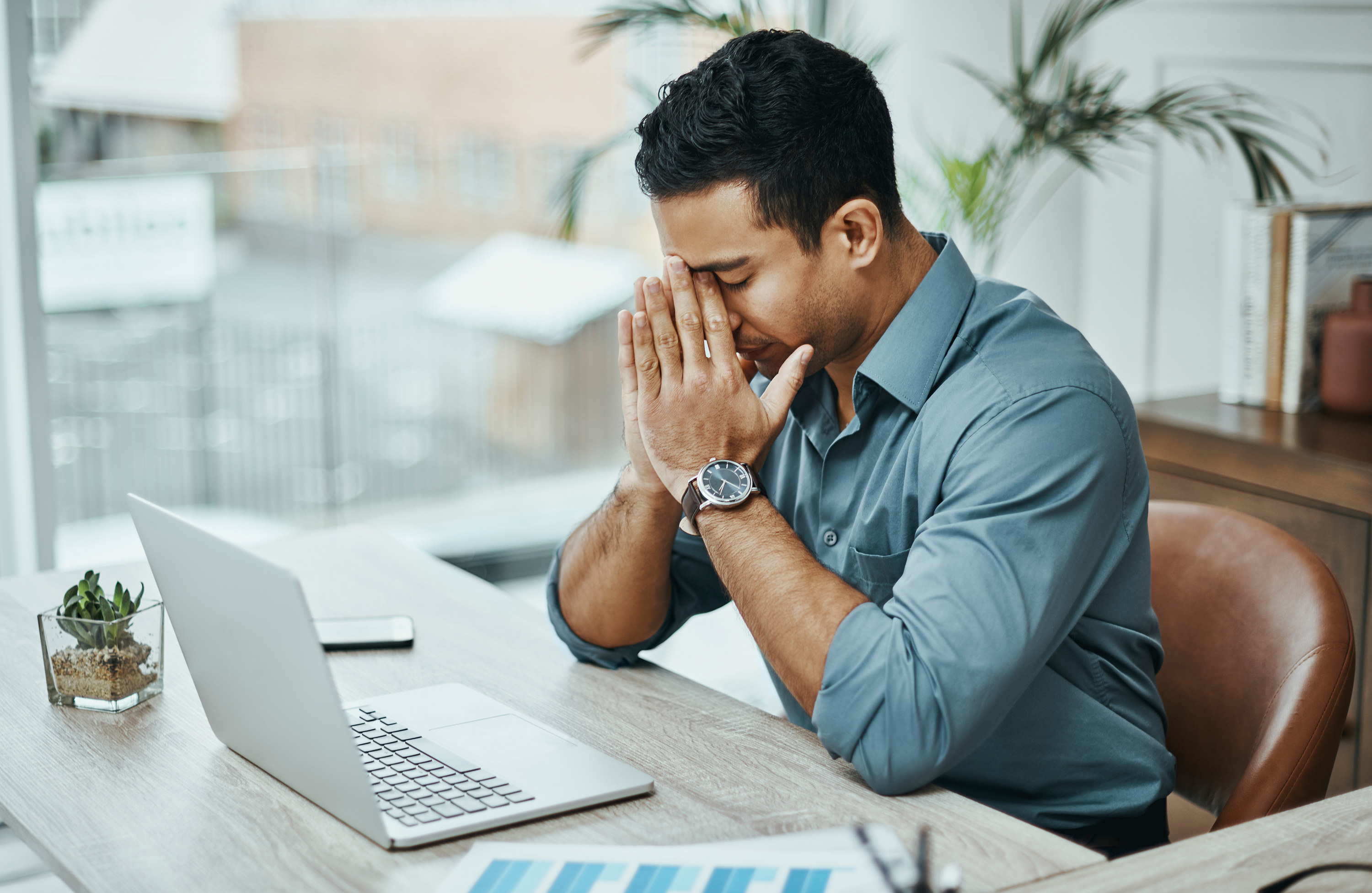Even though therapists may seem superhuman to us, they often also seek mental health professionals to aid with their own day-to-day lives (which is completely normal BTW). And since it's never a bad idea to get as much mental health advice as possible, we asked therapists from the BuzzFeed Community to tell us the greatest piece of advice their own therapists told them — whether it had to do with relationships, family, self-esteem, and beyond.
Here are a handful of their answers.
1. "In the middle of a divorce where my now-ex was berating me for my physical appearance and telling me he didn't find me attractive anymore, I would think to myself, 'He's entitled to that opinion.' I had talked to others about it, and they essentially said everyone is attracted to different things, which is true. My therapist was the only one who validated my anguish. I remember when she said, 'That sounds very painful.' I broke down because she was the only one who really got to the soft, tender core of the matter and validated my true feelings. Most people try to rationalize or look for the logic, yet — they miss the bigger picture of the need to respond to emotion with emotion. When someone gets it right, it makes a big impact."

2. "I had just gotten out of a long-term relationship with a guy who (in hindsight) had manipulated me into dating him when I knew it wasn’t what I wanted and staying when I felt like it wasn’t right. I was telling my therapist about feeling conflicted about getting back into dating, and she stopped me and asked, 'Is having a romantic partner in life a priority for you?' I was kind of stunned — no one had ever asked me that before, ever. And the answer was no, which she obviously sensed in me before I could identify it myself. So, she said, 'Okay, then make choices that align with what your priorities actually are.' I’ve been single for two years, not dating at all, and have never been happier or more myself."
—Danielle, 30, School Counselor
3. "Growing up, I used to feel shame for being mad or sad about a situation. I was told that those are 'bad' emotions, and I had no reason to feel that way. I lived with this shame/guilt for most of my life, until I met my therapist. One of the best things that my therapist told me is that there is no such thing as a negative emotion. We feel emotions because it’s our body's own response to whatever is happening. Now, I embrace these emotions and express myself in healthy ways, which have actually helped in so many relationships with family members and friends."

4. "I started therapy when I was 15 due to intense anxiety I was going through as a result of family drama. As I got older and began uncovering a lot of shit, it wasn't until my therapist pieced together how my anxiety stems from the need to 'prove' to others about my capabilities, especially since I grew up with disabilities. That didn't hit me until I had an epiphany after the fallout with a 'friend' who wanted 'proof' of evidence to a statement I made two years ago. That's when I realized my therapist was right."
—Anonymous, 29, Psychotherapist
5. "My therapist DRILLED into my head that you have to put yourself first. No matter how many people you want to please, accommodate, or be there for — you matter just as much (if not more!). It’s okay to set boundaries and distance yourself from people who cause you distress. The only person that you will have for the rest of your life is yourself, and you deserve to live a life that makes you happy."

6. "I survived 35 years suppressing every emotion I ever felt (because my mum told me feelings were bad) before being told (by my therapist) that my feelings were valid. No matter if they didn’t make sense, didn’t feel like they should be honored, or just plain felt selfish. Every emotion, every wobble, every low day. They are all valid (sometimes temporary but always real), and I am now able to respect my emotions and move on. Life-changing to honor my own gut instinct, heartbreak, and wounds. Absolutely mind-blowing."
7. "You can’t be 100% for 100% of the time. It is okay to make mistakes."

8. "It was super simple: What is the worst that could happen? I would often worry about things in a very abstract and overwhelming way, and my therapist knew I just needed to process and work through the reality of what could possibly happen. This allowed me to name, understand, and simplify my fear or concern and move forward by working through tangible possible steps to address my fear or the possible consequences of challenging things."
—Siri, 26, Marriage and Family Therapist
9. "I have some trauma from my recent past, and some huge sadness and anger. I have described feeling like if I start to let some of my sadness out, then it will be like breaching a dam wall, and I’ll never be able to stop crying, or I will feel sad and angry all the time, which can be really problematic as a therapist. I don’t have time to get stuck in my sadness because I have to stay regulated enough so I can hold space for others. My therapist told me to find tributaries (small ways of letting my sadness out) upstream from the dam wall. These tributaries can allow me to release some of my big emotions in smaller ways, and release some of the pressure that is building against the dam wall. I’ve started to journal, go for runs and walks, do some expressive artwork, and talk to friends and family about some of the sadness — and that feels like enough right now."

10. "I’ve been a therapist for 15 years. While I was in graduate school, I started therapy. The two things I always remember are: 'You can start your day over at any time.' This was mind-blowing to me. I thought once the day got tough, the whole day was ruined. Nope! Turns out you can restart your day and have a tough, joyful, fun, and miserable day. The other thing was: 'You’ll know when you know.' I felt very ambiguous about a romantic relationship and wanted to leave, and yet didn’t want to. She kept telling me: 'You’ll know when you know,' and sure enough, an incident happened with my boyfriend, and I knew, 'This is it; this is what my therapist means.' And I ended it."
—Anonymous, 40, Licensed Clinical Social Worker
11. "I have struggled for years with a deep discomfort of being vulnerable (thanks, childhood trauma), which I always thought was ironic given that I’m a therapist, and I expect my clients to be vulnerable with me. My own therapist, however, pointed out to me that our chosen profession has very strict ethical principles that stipulate disclosing our personal opinions/beliefs/etc., to our clients. Hence, being a therapist may have been my subconscious attempt to ensure that I would NEVER have to be vulnerable, and kept me 'safe' from the pain of having to address it. It was eye-opening and has given me the courage to slowly explore my vulnerabilities."

12. "My therapist told me that I don’t have to be nice and I can be kind. We discussed how women are taught to be polite and subordinate (for lack of a better word). Like, I don’t have to people-please and be nice to everyone. I can choose to be kind. It helped reframe how I view myself, and I allowed myself to continue to practice assertiveness."
—Chelsea, 34, Therapist
13. "Your parents ruined your childhood; don’t let them ruin the rest of your life. And, you are 100% responsible for your life."

14. "My therapist uses the polyvagal theory in his work (connecting thoughts/emotions to the body), and his catchphrase is: 'I don't care WHAT you're doing as long as you know WHY you're doing it.'"
—D, 30, Licensed Clinical Social Worker
15. "I’m a therapist, and having worked with trauma and addictions for much of my career, I found myself burnt out and experiencing significant anxiety symptoms. I was invalidating myself because of the exposure I had to my clients’ traumas and telling myself I needed to be grateful. My therapist told me: 'The worst thing that’s ever happened to you is still the worst thing that’s ever happened to you. It’s the only "worst" you know, and it benefits no one to compare.' It allowed me to stop the toxic practice our society has where we should 'suck it up because others have it worse.' Sure, we should practice gratitude; however, everyone only knows their own worst, and that deserves to be acknowledged, too."

